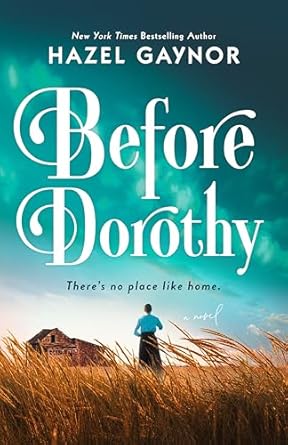A free woman of color in the 1830s, Margaret Morgan lived a life full of promise. One frigid night in Pennsylvania, that changed forever. They tore her family apart. They put her in chains. They never expected her to fight back.
In 1837, Margaret Morgan was kidnapped from her home in Pennsylvania and sold into slavery. The state of Pennsylvania charged her kidnapper with the crime, but the conviction was later overturned by the U.S. Supreme Court. It was the first time a major branch of the federal government had made a pro-slavery stand, and the ruling in Prigg v. Pennsylvania sewed the bitter seeds of the states' rights battle that eventually would lead to the Civil War.
Yet, the heart of this story is not a historic Supreme Court ruling. It is the remarkable, unforgettable Margaret Morgan. Her life would never be the same. Her family had been torn apart. Uncaring forces abused her body and her heart. But she refused to give up, refused to stop fighting, refused to allow her soul to be enslaved.
Paperback, 274 pages
Published April 2nd 2011 by Bell Bridge Books
ISBN 1611940052 (ISBN13: 9781611940053)
About the Author
re-posted from her website
I write. I live in the metro Phoenix area with my husband, two children and two dogs. And I write.
All Different Kinds of Free, my award-winning historical debut novel, was published April 2011 by Bell Bridge Books.
My reporting and creative nonfiction has appeared in a variety of magazines, including Business Week, The Writer, Phoenix, Raising Arizona Kids and ASU Research to name a few. Many corporations, universities and nonprofit organizations also tap me to write and edit dynamic communications materials.
Check out the author's website
Follow the author on Twitter
Fan the author on Goodreads
Like the book on Facebook
My Thoughts
Mama always told me bad things happen on Wednesdays, 'cause it's the middle of the week and the Lord just ain't looking then. I never really understood what she meant by that, because I thought the Lord was always supposed to be looking. But her explanation still consoled me when the goats got into the saltbox and Mr. Ashmore took the switch to me for it, or when my stomach was growling at night because rabbits had gobbled up our small garden and all we had to eat that summer was Johnnycakes.Town/Environment:
It was hard to pick a place to highlight, as this book took place in areas across Pennsylvania, Maryland and South Carolina, and a very central scene to the story even took place at the Supreme Court in Washington D.C. However Margaret grew up as a young girl on the Ashmore place in Maryland, and Mr. Ashmore built a water mill where her father worked, and I liked this picture.
Based on real historical characters, this is one of those absorbing stories that can keep you on the edge of your seat, wondering what will happen to Margaret and her children.
The author reveals at the end of the book how this book came about.
The references you will find to Prigg v. Pennsylvania in history books are typically brief and lack details about the people involved. They generally emphasize that its controversial ruling fanned the early sparks of contention that eventually led to the Civil War. The history books will have you believe that is why the story of Prigg v. Pennsylvania is important.Little else is known about Margaret, other than the fact that she lost the case against Pennsylvania that concerned her. This book speculates about how her life may have gone.
Yet, from the moment I first learned of Prigg v. Pennsylvania, I believed the story was important because it began with Margaret-- with one woman's fight, against all odds, to hold her family together.
According to the published Supreme Court opinion for Prigg v. Pennsylvania, Margaret Morgan escaped a life of slavery in Maryland when she fled to Pennsylvania in 1832. She lived there several years before being abducted by Edward prigg and returned, along with her children, to her owner Margaret Ashmore. Prigg was brought up on charges for violating the Pennsylvania Personal Liberty Law, which had been created to protect free blacks from kidnapping.
According to several other public records, however, Margaret had lived her entire life as a free woman. The court opinion failed to note that she had married a free black man from Pennsylvania many years before she left Maryland and that she had not been listed on John Ashmore's deed of property at the time of his death. Margaret was not itemized as part of the inheritance to his widow or to his daughter, as was all his other property. In fact, in the 1830 U.S. census, she, her husband and their children were recorded as "free blacks" by the county sheriff.
Margaret is a strong woman, living a blessed life with her husband and children, when Edward Prigg forcibly takes her and her children from her home and returns her to the widow of the man who once owned her parents.
I really enjoyed this story, although there were a few characters that seemed to have been inserted into the story for no real purpose, such as the character of Rose McFarland. She was a spirited and intelligent young woman that I would have been interested in getting to know better, but instead she was introduced briefly and then disappeared from the story again. It left me wondering why make a character so intriguing and likable just to have her be a momentary distraction?
My final word: Simple and unadorned, this hard-hitting story will leave you rooting for Margaret and her family, hoping against hope that she regains the freedom stolen from her. If you like fictional stories about slavery and the struggle to overcome, pick up this book!
Buy Now:
Amazon
Barnes and Noble
Cover: B
Writing Style: B+
Characters: B+
Storyline/Plot: A-
Interest/Uniqueness: A-
My Rating:
Disclosure:
I received a copy of this book to review through the LibraryThing Early Reviewers, in exchange for my honest opinion. I was not financially compensated in any way, and the opinions expressed are my own and based on my observations while reading this novel.






















No comments:
Post a Comment